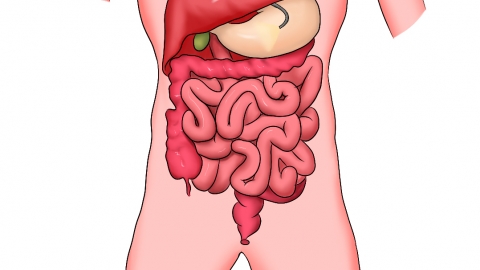How Can Gastrointestinal Dysfunction Cause Stomach Bloating?
Generally, the main causes of gastric distension caused by intestinal dysfunction include improper diet, excessive emotional fluctuations, functional dyspepsia, irritable bowel syndrome, and small intestinal bacterial overgrowth. If discomfort symptoms occur, it is recommended to seek timely medical treatment at a regular hospital. Detailed analysis is as follows:
1. Improper Diet
Excessive consumption of gas-producing foods such as legumes, onions, and sweet potatoes, or talking frequently and eating hastily during meals, can lead to excessive air entering the intestines. Additionally, fermentation of food in the intestines may produce excessive gas, causing gastric distension. It is important to adjust dietary habits and reduce intake of gas-producing foods.

2. Excessive Emotional Fluctuations
Long-term anxiety or depression can affect the balance between the sympathetic and parasympathetic nervous systems, inhibit intestinal motility, and obstruct the discharge of gas and food residue in the intestines, leading to gas accumulation and causing gastric distension. Emotional regulation through listening to music, exercising, and maintaining a cheerful mood is recommended.
3. Functional Dyspepsia
Insufficient gastrointestinal motility and reduced secretion of digestive enzymes can cause food to remain in the stomach for an extended period, leading to fermentation and gas production. When the movement of gas upward or downward is obstructed, gastric distension occurs. Under a doctor's guidance, medications such as domperidone tablets, lactase tablets, and compound digestive enzyme capsules may be taken to promote gastrointestinal motility and supplement digestive enzymes.
4. Irritable Bowel Syndrome
Increased intestinal sensitivity and abnormal motility can cause spasms after food stimulates the intestines, leading to poor gas expulsion and resulting in gastric distension. This is often accompanied by abdominal pain and changes in bowel habits. Under a doctor's guidance, medications such as pinaverium bromide tablets, Bifidobacterium triple viable capsules, and trimebutine maleate tablets may be taken to regulate intestinal motility and improve intestinal flora. In addition, spicy, raw, cold, and other irritating foods should be avoided.
5. Small Intestinal Bacterial Overgrowth
Imbalance of intestinal flora and abnormal increase in bacterial numbers in the small intestine can lead to excessive breakdown of carbohydrates in food, producing large amounts of gas, causing gastric distension, and possibly accompanied by bloating and diarrhea. Under a doctor's guidance, medications such as rifaximin tablets, metronidazole tablets, and lactic acid bacillus tablets may be taken to inhibit excessive bacterial growth and regulate intestinal flora. If medication treatment is ineffective, small intestinal bacterial overgrowth radiofrequency ablation may be considered.
In daily life, it is important to maintain regular eating habits and avoid overeating; maintain a positive mindset and avoid long-term emotional stress; engage in appropriate aerobic exercise to promote intestinal motility; regularly monitor intestinal health; and seek timely medical attention for persistent gastric distension.







